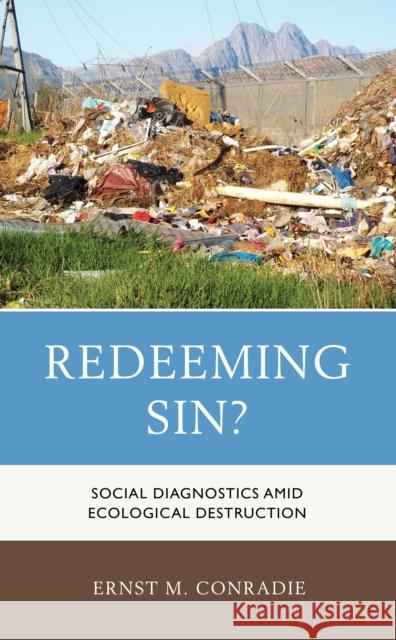Redeeming Sin?: Social Diagnostics Amid Ecological Destruction » książka
Redeeming Sin?: Social Diagnostics Amid Ecological Destruction
ISBN-13: 9781498542456 / Angielski / Twarda / 2017 / 290 str.
Can Christian discourse on sin be retrieved in the public sphere where it is typically contested and often ridiculed? In this contribution to Christian ecotheology, emerging from within the South African context, Ernst Conradie argues that such a retrieval is indeed possible if sin-talk is regarded, at least from the outside, as a form of social diagnostics. It can contribute to multidisciplinary collaboration to address the common need for an in-depth diagnosis of what has gone wrong in the world around us. This is epitomized by ecological destruction but also by economic inequalities and violent conflict. However, such a retrieval is only possible if some major obstacles are confronted. These include the plausibility of the notions of the fall and original sin in the light of evolutionary history, animal ethology, and the cognitive sciences. It is especially the Augustinian tradition and its dual assumptions that it was possible not to sin, but that, after the fall, it is no longer possible not to sin, that have been deeply contested. Conradie compares the Augustinian narrative of what went wrong in the world with other Christian and secular narratives. He defends an Augustinian position, especially given its insistence that social evil, rather than so-called natural evil, is the primary predicament that has to be addressed. Given the contemporary "wicked problems" that we have to address together, it remains crucial to insist that our problem is not vulnerability but rape, not death but premature dying, not a changing climate but anthropogenic climate change. If the root cause of such social evil is indeed sin, then a Christian confession of sin may offer good news for the whole earth. Indeed, there is a sunny side to sin.











